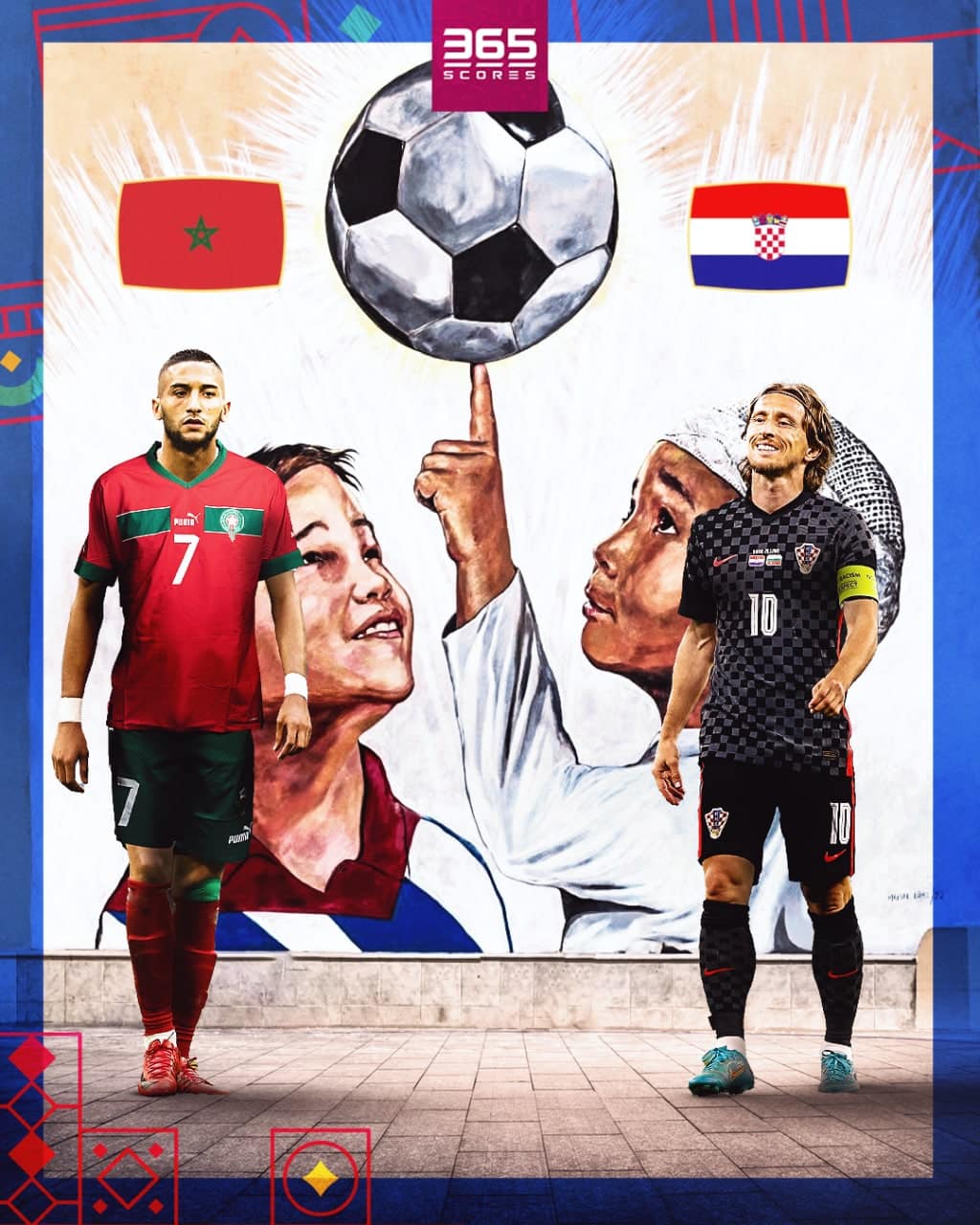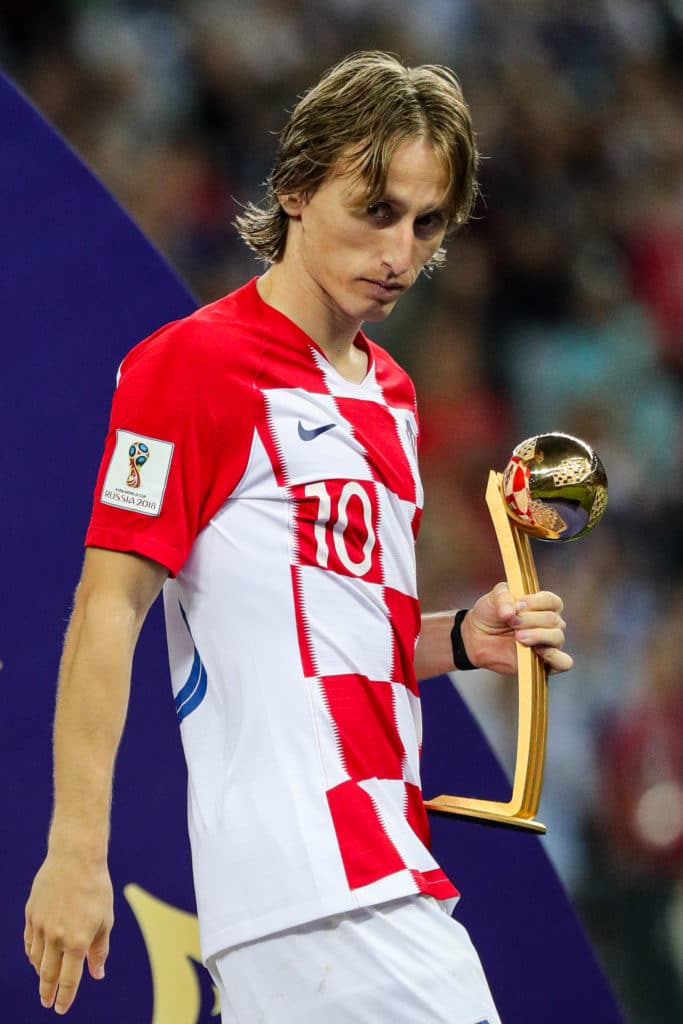
After reaching the FIFA World Cup final in 2018, Croatia can no longer be considered a dark horse, although they could still realistically advance to the latter stages at back-to-back World Cup tournaments.
Since earning a stunning third-place finish at its first World Cup appearance in 1998, the Balkan nation has played at all but one of seven editions of the tournament, making this their sixth appearance at the World Cup finals. The only event Croatia have failed to qualify for this century was South Africa 2010.
Their progression to the final in Russia four years ago was no fluke, and the Croatians will be out to prove they still have what it takes to compete with the world’s best.
Their opening game of this year’s event sees them battle with Morocco at the Al Bayt Stadium. Also in Group F are Belgium and Canada, who meet at the Ahmed bin Ali Stadium later on Wednesday.
Head coach Zlatko Dalić is five years into his post at the helm of the national team and the 56-year-old has truly stamped his mark on the group. Dalić was appointed Croatia boss within a year leading up to the 2018 World Cup, in which he guided the nation to its most fruitful return at the showpiece event.
Croatia topped its 2022 WC qualifying group with 23 points out of 30, taking seven wins from their 10 matches. The men in red and white created 37 chances in World Cup qualifiers – more than any other European nation.

(Photo: Getty Images)
Croatia have also qualified for the UEFA Nations League finals for the first time. They took an impressive 13 points from 18, winning four of six games, in a group consisting of Denmark, France, and Austria. The Croatians will meet one of Italy, Spain, or the Netherlands in the UNL semi-finals next summer.
With a population of approximately four million people, Croatia are the third-smallest nation at the 2022 World Cup finals – ahead of only Uruguay and hosts Qatar. In spite of a relatively smaller following, the Croatia team still boasts high levels of unity, team spirit, and morale, not to mention quality on the pitch.
Qatar 2022 may potentially prove a final act for Luka Modrić at international level, with the 37-year-old set to feature at a fourth World Cup finals with his nation.
The seasoned midfielder has been captain of the national team since 2016 and he is the most-capped Croatia international of all time, with 155 outings for his country.
Modrić was integral in Croatia’s inspired journey to the World Cup final in 2018 and, together with his Champions League triumph with Real Madrid that year, the midfielder scooped the prestigious Ballon d’Or and The Best FIFA Men’s Player awards for 2018.
Ivan Perišić and Marcelo Brozović are also well-positioned having appeared at two previous World Cup tournaments. Defenders Dejan Lovren and Domagoj Vida, too, are set to represent Croatia at the event for a third time.
— FIFA World Cup (@FIFAWorldCup) October 31, 2022
“We will always be grateful for what he has done.”
This may be @lukamodric10’s final #FIFAWorldCup but Zlatko Dalic is confident he will drive @HNS_CFF forward once more.
Dalić has taken the opportunity to promote a younger, up-and-coming crop of talent, with only seven of his 23 outfield players possessing previous World Cup experience. The junior group have fantastic senior figures to look up to: top professionals with bags of experience at some of the very best clubs in world football.
One of the younger players being blended into the mix is highly-rated centre-back Joško Gvardiol. The RB Leipzig defender is poised to stake his claim at international level and become Croatia’s rock at the back for the long-term.
Gvardiol, 20, possesses physicality and pace, each in abundance, and his ability to pick a pass is not too shabby either. His height naturally enhances his presence in aerial situations and he could be influential at set-pieces at both ends of the pitch.
Further up the pitch, Perišić has made the left flank his own while the ever-reliable midfield of Modrić, Brozović, and Mateo Kovačić picks itself. The only remaining question: who plays up front for Croatia?
There is no hiding the team’s obvious weakness being the lack of a proven goalscorer. Modrić and Perišić were Croatia’s joint-top scorer in World Cup qualifying, with three goals apiece.
Strikers Ante Budimir, Andrej Kramarić, and Bruno Petković are the main options to lead the line, however, with neither of them possessing all the attributes of a modern no.9, it remains to be seen who Dalić will select as his focal point in attack.
Croatia are currently 12th on the FIFA world rankings, eight places higher than at the start of the 2018 World Cup. At the time of Dalic’s appointment in 2017, the Balkan nation was ranked 18th in the world. Under a year later, their heroics in Russia 2018 propelled them to fourth spot – their highest ranking since 1999.
Likewise to this year, Croatia opened their 2018 World Cup campaign against an African nation as the eventual finalists beat Nigeria, 2-0, on route to topping their group with three wins out of three.
Croatia are 2.05 to claim victory over their North African opposition on Wednesday; Morocco are 4.00 to win; 3.20 for a draw. (Bet365)



